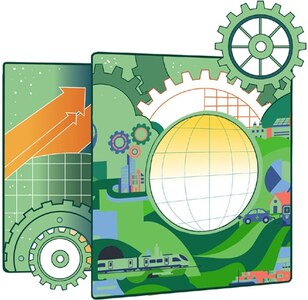BEIRUT: Lebanon announced on Sunday that Qatar had entered a consortium to explore for offshore gas in waters near Israel, following a historic border deal last year between the two foes.
The agreement green-lights Lebanon’s exploration of its southern Qana, or Sidon, reservoir following the signing of the landmark accord last October demarcating its maritime borders with long-time enemy Israel.
Sunday’s deal will see the gas-rich Gulf country’s state-run QatarEnergy receive a minority 30 per cent stake in two blocks of Lebanon’s exclusive economic zone, according to Lebanese caretaker Prime Minister Najib Mikati.
French company TotalEnergies and Italy’s Eni will both retain 35 per cent shares in the blocks after Russia’s Novatek relinquished its minority stake in 2022.
Lebanese Energy Minister Walid Fayad and his Qatari counterpart Saad al-Kaabi, who is also QatarEnergy’s chief executive, signed the deal on Sunday, along with the heads of Eni and TotalEnergies.
Kaabi told a press conference following the signing ceremony that Qatar’s involvement was an “opportunity to support Lebanon’s economic development”.
Lebanon has been caught in an economic quagmire that has plunged much of its population into poverty and been described by the World Bank as one of the worst in modern history.
TotalEnergies’ Patrick Pouyanne said he expected the exploration phase of the
Qana project to be completed “within the next 12 months”, expressing hope that the work would result in discoveries of hydrocarbons.
‘Political guarantee’
Under a US-brokered accord, Lebanon and Israel, which are officially still at war, delimited their maritime borders in October last year.
The agreement paved the way for Lebanon to begin exploration in the Qana reservoir — which is partly located inside Israel’s territorial waters — in return for compensation payments.
Speaking in October after finalising the demarcation accord, then-Israeli prime minister Yair Lapid said Israel would be entitled to 17 per cent of the proceeds from Qana.
“Qatar’s entry into the consortium is above all politically significant,” according to energy consultant Naji Abi Aad. He said that Doha’s involvement “brings a political guarantee” as Lebanon grapples with its multiple crises. But analysts agree it will take several years for Beirut to begin exploiting the Qana field, should a commercially viable discovery be made.
“You need an infrastructure to export the gas, which currently does not exist,” explained Abi Aad, adding that construction of a coastal pipeline would be required for any domestic use of the energy reserves.
Israel already delivers gas to its neighbours Egypt and Jordan, and in June signed a deal to liquefy gas using Egyptian infrastructure with a view to delivering it to Europe via shipments.
Published in Dawn, January 30th, 2023































